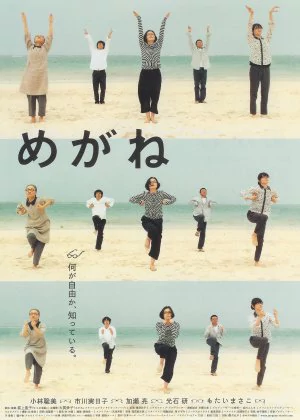Glasses
Naoko Ogigami is one of the few female directors I truly appreciate, with Glasses [Megane] she holds a firm claim for the top spot. If you're looking for two hours of blissful escapism, a couch vacation like no other, you've found your film. Glasses offers little, but what it offers is so pure and so relaxing that it's easily one of the best film in its genre. Make yourself a cocktail, put on something easy, sit back and just enjoy.
![screen capture of Glasses [Megane]](/thumbs/img/articles/1200xauto/glasses-1.webp)
Ogigami's films take a little preparation to enjoy. Make sure you're not looking for anything action-oriented (in the broadest sense of the word). Her films are not about events, not about "things happening" or about characters bearing their deepest emotions. Instead, Ogigami's films are about the moment, the atmosphere and enjoying the little things in life. Sitting down on a bench at the beach, enjoying shaved ice with beans and truly enjoying the experience.
The film follows Taeko, a veritable city woman who planned a vacation away from all the stress and chaos of urban life. In order to truly escape her own little bubble, she picks a small hotel on Okinawa, far away from all things civilized. Once there she is somewhat overwhelmed by the boredom that befalls the place and the communal behavior of the other visitors. Before long she decides to find a different place to stay, but that proves a bit more difficult than expected.
Without any viable options left, Taeko decides to make the best of her vacation. Slowly she starts to adapt to the particularities of the hotel's visitors and even though most of them keep themselves at a safe distance, she starts to bond with them. That's about all there is really, no dramatic climaxes, no big lessons learned. Just a woman coming at ease with herself.
![screen capture of Glasses [Megane]](/thumbs/img/articles/1200xauto/glasses-2.webp)
On the visual side of things Glasses is a very pleasant film. Rather static but well-considered shots and bright spring colors (lots of greens and blues) make up a scenery in which you feel very much at home. Okinawa is clearly a beautiful place to reside and Ogigami captures its charm with deceptive ease. People familiar with this kind of rural Japanese drama will know what to expect as it doesn't differ much from the norm, but the execution is flawless and extremely efficient.
The same could be said about the soundtrack. If at some point you feel like you're watching a Takeshi Kitano film (Kikujiro comes to mind) it's because the soundtrack is very reminiscent of Joe Hisaishi's best work. Very lovely, relaxing tunes that blend seamlessly with the images. It's nothing too original, but once again the delicate execution of the score outwits any claim of lack of originality.
Ogigami reunites with some of her favored actors. Kobayashi is back after Kamome Diner and takes up the role of Taeko. She does an excellent job, but it's Masako Motai who steals the show (once again). She is without a doubt of the uniquest female comedy actor I've come across in all these years of watching film. Even though her posture and stature seem to state she is a somewhat old and grumpy lady, she injects her performance with surprising gems of subtle comedy. Be it the little morning dance or the scene where she prepares beans ... Motai steals every frame she's in. That said, the rest of the cast is impeccable too, making for a very enjoyable group of characters to hang out with.
![screen capture of Glasses [Megane]](/thumbs/img/articles/1200xauto/glasses-3.webp)
Glasses is not a film about explanations. We learn very little about the characters who come together each year to spend their vacation in the little hotel. Even though Taeko explicitly asks about the background of some of the people she meets, Ogigami seems to be answering herself with a lack of direct answers. The film transcends typical dramatic events and character exploration, rather it lets its character live their own lives and offers a time-out without a single moment of worry. It's a film about escaping everyday reality and taking the time to "twilight", as the film puts it so eloquently.
There are moments of blissful comedy, moments of utter relaxation and moments of simple wonder. Glasses is Ogigami's best film so far (though I still need to see Toilet and Rent-A-Neko), a film that doesn't ask much, but gives plenty in return. As long as you can find the time to sit down and relax, not expecting any kind of adrenaline rush, the film will deliver in spades. It relishes the beauty of boredom and shows a glimpse of true bliss, even to people who wouldn't normally want to be caught dead in main character's situation. If you ask me, that's the sign of a truly powerful film.
